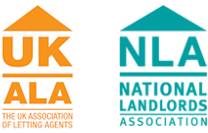Commercial
Looking for commercial property for rent? Whether it's your first foray into renting commercial property, or you already have some experience under your belt, it can still be a major commitment.
We've pulled together this handy guide to renting commercial property to help you navigate the process with confidence.
From finding the right type of property, through to knowing the key questions to ask the landlord, we've got you covered.
Finding the right premises
Location is one of the most important factors when deciding on new premises. You should thoroughly research the local property market dynamics, such as availability of property, tenant demand and rental values.
If you are looking for a restaurant, cafe or shop, you will want to ensure it has high footfall. If you are seeking a distribution warehouse, you will require good transport links. And if you are searching for office space or serviced offices to rent, you will need a location that staff can easily commute to.You might also want to look out for incentives and initiatives in the region,
Guide To Making An Offer
The information provided below is offered for guidance purposes and you may wish to seek independent professional advice from your advisors (solicitors, surveyors etc) before entering into a contract to lease.
All correspondence and offers should be made ‘Subject to Contract’ ensuring that there is no legal commitment to any proposal at this point.
Along with the terms of your commercial offer, you will need to submit the following information:
APPLICANT / COMPANY INFORMATION
- Full name and address of the person (s) and or company who intend to take the lease.
- Registered company address
- Detailed description of the business which will operate from the premises.
- Full Company accounts for the last three years.
- Solicitors details
Details of the premises
Although it should be self-evident, it is important to specify the unit/address of the premises you are referring to, especially if there are other units to let at the same property.
Rent
Please state the proposed rent per annum exclusive (pax) - the yearly rent is usually paid exclusive of business rates, service charge, VAT etc and may be subject to upward only rent reviews every 3, 4 or 5 years.
Rent will usually be paid quarterly (3 monthly) in advance and VAT will often be payable on the rent. If VAT is payable, then it can be claimed back if you are VAT registered (please seek confirmation from your accountant).
Lease term
Please state the number of years of the lease - For example a 3, 5 or 10-year lease etc and more importantly when you want the lease to start.
Leases are often “contracted out” of the security of tenure and compensation provisions of the Landlord & Tenant Act 1954. If this is the case, the you (the Tenant) will be required to sign a Statutory Declaration in the presence of a solicitor. This is a very simple pro forma document essentially confirming that you are understand that the lease will not automatically be renewed at the of term.
Break clause
You may wish to include a break clause (to terminate the lease at a given point during the term), in which case please suggest when you wish this to be effective and how much notice you are prepared to offer.
If the Landlord is prepared to agree to this he may require a minimum term of before the break clause is acceptable, a reasonable notice period and in some cases a penalty payment if a break clause is implemented.
Sometimes the Landlord may also require a break clause, but this will usually be made clear up prior to or during the process of the negotiations.
Rent free period
The Landlord may be prepared to grant you a period of rent free at the beginning of the lease term, for example where the Tenant is required to carry out improvements / repairs as a condition of the lease.
Use of the property
Please tell us about your proposed use (for example; Office, Retail, Industrial etc.)
Repair Liability
Most commercial leases are granted as Full Repairing and Insuring Leases (FRI). This means that you (the Tenant) will be responsible for all repairs and insurance of the building, either directly or you will pay a due proportion if the premises form part of a larger building, usually collected by the Landlord in advance by way of a Service Charge.
You may want to take advice from a qualified surveyor regarding the condition of the property, particularly if it is a self-contained building.
References
In some cases, the Landlords may undertake an online credit check before agreeing terms and/or may request the following references:
- Accountant details
- Current / previous Landlords
- Bank details
- Trade references
Surety Deposit
Most Landlords will require the Tenant to put up a surety deposit – this usually is for a minimum amount of three months rent plus an amount equivalent to VAT, but in some circumstances the Landlord may require a higher deposit, particularly if the Tenant is a new start up business or cannot provide satisfactory trading accounts for three consecutive years.
Solicitors
Due to the complexity of formal lease agreements, we recommend that that you retain a suitably qualified solicitor to advise you.
Please note the more information you can provide “up front”, the more likely the Landlord will take your offer seriously and deal with it promptly.






